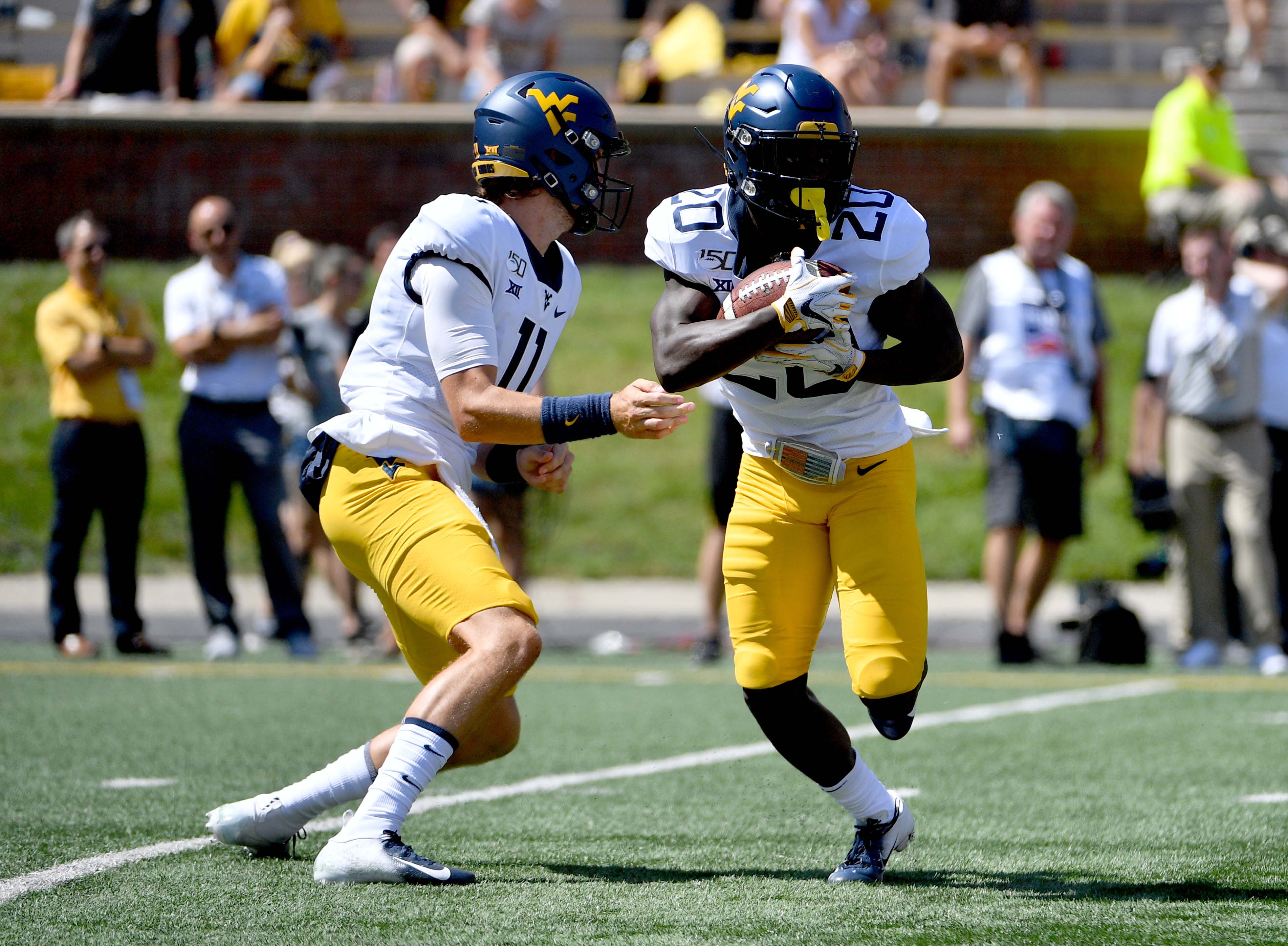MORGANTOWN, W. Va. — When asked all offseason what the strength of the West Virginia offense was going to be this season, there wasn’t an ounce of hesitation in my voice — the running backs.
Just look at the names — Kennedy McKoy, Martell Pettaway, Leddie Brown and Alec Sinkfield. All have played significant snaps in their careers, and McKoy and Sinkfield are seniors who have been around the block a time or two and have had success.
McKoy had 1,875 rushing yards in his career, as well as 19 touchdowns. Pettaway had 1,032 yards and nine scores, so with nearly 3,000 yards and 30 touchdowns worth of experience, there was no reason to think that the running game could possibly be the weakness on what was otherwise and totally inexperienced offensive group.
But here we are, through two games, McKoy has an abysmal 12 yards on 18 carries — a 0.7 average — while Pettaway has 14 yards on 15 carries — again, under one yard per attempt.
It doesn’t even seem possible, regardless of experience, to run that poorly, but most fingers will point to the offensive line. Coach Neal Brown squashed that, saying the entire offense, minus quarterback Austin Kendall, is to blame for what was supposed to be a strength turning into a dreadful weakness.
“Our running backs, tight ends and receivers have been every bit the issue as the O-line in the run game,” he said.
Though the two most experienced runners haven’t been nearly as productive as many hoped, sophomore Leddie Brown has yet to play this season after suffering an ankle injury in camp. He will get his first opportunity Saturday against N.C. State after Neal Brown said he will be full-go against the Wolfpack.
For the first time all season, sophomore Alec Sinkfield made consistent positive plays last in the fourth quarter of the loss at Missouri. While still not great, he averaged three yards per carry against the Tigers, and Brown said they should start giving him more attempts, which could be indicative of the plan to juggle the starting lineup this weekend.
Outside of Sinkfield, who missed most of last season with an injury, every running back has proven to be capable of playing well at this level. The offensive line features an all-conference player in left tackle Colton McKivitz, but most of the wide receivers and tight ends have almost no experience playing college football.
Simply put, the running woes cannot last all season — the running backs are too good for it to happen.
So while the coaching staff wants to place blame on everyone for the 1.1 yards per carry, this season, it will eventually come down to how the offensive line comes together the rest of the season. It all begins in the trenches, and if there are continually no gaps to hit or room to run, then even the most talented back will have trouble netting positive yards.
If the running game continues to struggle, the passing game will continue to struggle. If the passing game struggles, then the opponent can control the clock. That’s exactly the recipe Missouri used to throttle the Mountaineers by 31 points last week.
“Here is the deal, and I don’t think I’m saying anything that anybody playing us doesn’t already know,” Brown said. “Everybody that plays us is going to do this — they are going to get into some kind of front where they make us block in one-on-one situations. They are going to put one more in the box and they are going to play man coverage. So until we win one-on-one blocks, until we win in one-on-one coverage and until we break a tackle, then we’re going to struggle.”
And it doesn’t get any easier this week against N.C. State.
The Wolfpack are 4th nationally in rush defense, allowing 24 1/2 yards per game. The Mountaineers are averaging 32 yards per game on the ground.
This could be an oil and water situation for WVU, but it cannot afford to have a third-straight performance like it did against JMU and Missouri.
Seems impossible, right?
Tweet @SeanManning_DP




